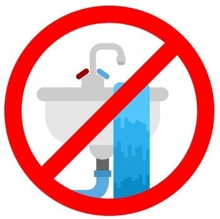
A clogged drain is no one’s idea of a good time. We’ve covered the best DIY fixes for clogs in a previous post, but today we’d like to talk about how to prevent clogs from happening in the first place. As the saying goes, an ounce of prevention is worth a pound of cure. Here are some recommendations to keep things flowing smoothly.
A Regular Cleaning Regimen
Hair and debris often cling to the pop-up stoppers in your sink and tub. Once a week, remove these stoppers, wipe off any gunk and toss it in the trash, then clean and replace the stopper. Go an extra step in your tub or shower: take a bent wire or hair-catching brush and give the drain a quick cleaning. On a monthly basis, use a bacteriological drain cleaner on all the drains in your home. The bacteria in these products will break down soap scum, grease, and other clog-forming material. Make sure you choose a cleaner that is biodegradable and non-corrosive, so that you don’t damage your pipes.
The #1 Preventive Product
Hair: if you’ve got it in any sizeable quantity, it’s probably going to clog your drains. You can prevent some of it from ending up in the drain by brushing thoroughly before you get into the shower, but that’s not going to keep your drains completely clear. Consider installing a drain cover to catch hair before it becomes a nasty clog. Drain covers come in a variety of styles, from fine mesh screens for a discreet look to brightly-colored rubber starfish for the more whimsical. They’re inexpensive, easy to clean and maintain, and certainly better than dealing with clogs!
Take It Outside!
A few other small changes can lead to big gains in cleaner drains. First, you aren’t the only one clogging up the works with discarded hair — your pet’s hair is also a culprit. When the weather allows, wash your pets outside to prevent Fido from filling up the drain. Also, be aware of how you dispose of dirty water (such as after mopping a floor). Especially in older homes with sensitive plumbing, the collected dirt, dust, and lint can lead to clogs. If possible, empty these buckets outdoors or even into the toilet. To avoid a different type of clog, make sure you teach your children how your household drains work, that toys should never be flushed down the toilet, and that any toy smaller than the drain should not be a bathtub toy.
If you’re following the guidelines above and still having frequent problems with clogs, it’s probably time to seek professional help. Call in your plumber to investigate the problem and recommend a solution. Your plumber has all the necessary tools to make clearing drains a snap, as well as years of knowledge and training to understand the cause of your issue and figure out how to fix it. Clogged drains certainly aren’t any fun, so clean regularly, invest in drain covers, and call in the experts when things get truly hairy.


